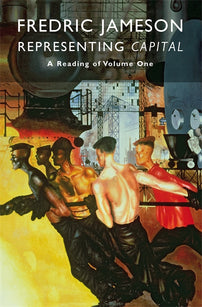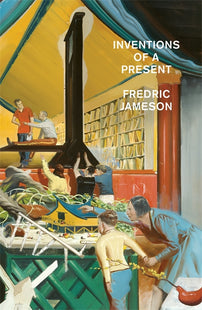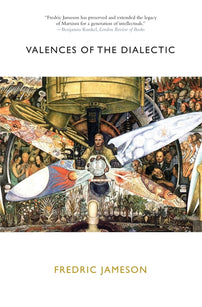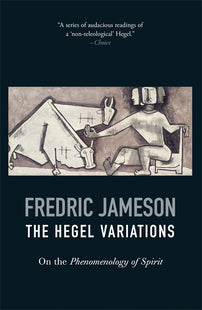Marxist interpretation as a vocation
For our Jameson at 90 series, Anna Kornbluh revisits Fredric Jameson's project to theorize Marx's Capital as a representation in his book Representing Capital.

The gerund Representing Capital (2011) casts at least two vectors of analysis: representing Capital, volume one, the book, and representing capital, the subject of modern totality. These two vectors involve close reading and the tropology of concepts – the literary critic’s purview, on the one side – and the poetics of social forms, the study of the modes of appearance of the structuring determinations of the world as we know it – the theorist’s purview, on the other side. The literary critic and the theorist hold in common a concern with figuration, and in Representing Capital as too in Capital, that concern opens onto the dilemma of unrepresentability. What manifold techniques are requisite to represent “what is not available to representation”? What kind of writing tries anyway, and what kind of writing-about-writing honors that dialectical effort of Darstellung? What mediations circumvent “absolute unrepresentability” toward a relative one? On this terrain of reflective representation, Fredric Jameson resides.
[book-strip index="1"]
Representing Capital the book argues that Capital is “a book about unemployment” (2), about “the absolute law which is the unity of capitalist production and unemployment” (147), and that this aboutness obtains through a composed, concerted systematicity across the book: modes of appearance of structuring determinations, like the commodity form and the money form, connected with voices attesting to the phenomenal and subjective dimensions of structuring determinations, like factory commission reports and worker testimony, connected with core processes like primitive accumulation and the tendency of the rate of profit to fall, and connected above all to dialectical thinking as that which can be described “only in terms of its various shapes … and not in terms of abstract concepts” (137). In the course of its argument, the book has opportunity to study both Karl Marx’s insights into the capitalist mode of production and his epistemic and indeed aesthetic project to compose and convey those insights. “Marx’s ambition,” Jameson observes, is “to theorize it (capitalism) as a totality.” In turn, Jameson’s ambition is to theorize Capital as “neither a philosophic work, nor an economic one” (6) and also “not a political book” (38) but as “a representation” (6). Representation is here dynamic, heteroglossic conceptualization, the exercise where theory and creativity meet in those “various shapes,” the figuration “capable of…a new moment of dialectical awareness” (135). Key to critically apprehending a conjuncture or context, key to formulating critique in its negative and affirmative poles, representation is “an essential operation in cognitive mapping and in ideological construction” (6). It is also always ongoing but not in a self-identically incomplete way; the incommensurability of representation and totality “is the reason for being of the dialectic itself” (6). Fail better.
[book-strip index="2"]
Representing capital the endeavor, Jameson has argued in almost every one of his many books, is an office, both unwitting and witting, unconscious and critical, for cultural aesthetics of a singular modernity. In specific media like film or fiction, in differentiated modes like realism or postmodernism, in diverse viewpoints like aggressive fables, conspiracy theory, and utopian desires, there lie the mediations of capital. This “ultimate horizon” founds both a methodological fidelity and a unity across aesthetics. We can appreciate that fidelity in the committed affiliation with the Marxian corpus and Marxist theorizing steadfast throughout Jameson’s entire unparalleled career, withstanding nadirs of left power and theoretical trendiness alike. And we can appreciate that unity in the tremendous variety of aesthetic works that have richly rewarded approach via the question of their strategies for representing capital, both in his own towering body of writings and in that stirring corpus of criticism and theory he inspires. Marxist interpretation is our vocation: writing dialectically and toward utopia. A book like this makes clear how theory and criticism can meet in answering the call to make sense, the challenge to construct cartography, the charge to study mediations in part by formulating new ones. The slim volume Representing Capital, a close reading and an imperative, is thus a stealth capstone for the Jamesonian oeuvre.
See all works by Fredric Jameson here. His new book, Inventions of a Present: The Novel in its Crisis of Globalization is out on May 7.
[book-strip index="3"]





